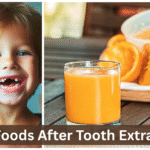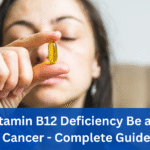In recent years, Prenatal Vitamins have become a popular supplement to Promote Hair Growth not just for pregnant women, but also for people looking to enhance their hair health. Influencers, celebrities, and beauty gurus often tout prenatal vitamins as a secret weapon for longer, shinier, and thicker hair. But is there any scientific basis for this claim, or is it just another beauty myth? In this article, we’ll explore what prenatal vitamins are, what they contain, and whether they truly contribute to hair growth.
What Are Prenatal Vitamins?
Prenatal vitamins are supplements specifically designed to support the health of pregnant individuals and their developing babies. These vitamins help ensure that the mother gets the right amount of essential nutrients that are often in higher demand during pregnancy. A typical prenatal vitamin includes folic acid, iron, calcium, vitamin D, DHA (a type of omega-3 fatty acid), and other key nutrients.
The primary purpose of these vitamins is to reduce the risk of birth defects, support the immune system, and maintain maternal health. However, due to the high concentration of certain nutrients known to be linked to hair health, such as biotin and folic acid, many people take them for their alleged beauty benefits—even when they’re not pregnant.
The Connection Between Nutrients and Hair Growth
To understand whether prenatal vitamins can promote hair growth, it’s essential to explore how specific nutrients affect hair health. Hair growth is a complex biological process influenced by genetics, hormonal levels, and overall health. However, vitamins and minerals that aid a crucial role in supporting healthy hair growth:
1. Biotin (Vitamin B7)
One of the most well-known vitamins linked to healthy hair is biotin. It helps convert nutrients into energy and supports the production of keratin, a structural protein that makes up hair, skin, and nails. Hair loss or thinning can result from a biotin deficit.
2. Folic Acid (Vitamin B9)
Folic acid helps in the production of new cells, including those in hair follicles. It’s also known to promote healthy blood flow, ensuring that hair follicles receive the oxygen and nutrients they need to function properly.
3. Iron
Iron is vital for producing hemoglobin in the blood. Hemoglobin carries oxygen to cells, including those responsible for hair growth. Iron deficiency, particularly common in women, can lead to anemia and hair loss.
4. Vitamin D
It is believed that vitamin D aids in the development of new hair follicles. Alopecia, a disorder that results in hair loss, has been connected to a vitamin D shortage.
5. Zinc
Zinc stimulates hair follicle health as well as tissue growth and repair. It additionally ensures that the oil glands that surround hair follicles grow correctly.
These nutrients are often present in significant quantities in prenatal vitamins, leading many to believe they can stimulate hair growth even outside of pregnancy.
Hair Changes During Pregnancy
During pregnancy, many people notice that their hair appears thicker and grows faster. This is largely due to hormonal changes—specifically increased levels of estrogen—that extend the growth phase (anagen phase) of the hair cycle. More hairs remain in the growing phase longer, resulting in fuller-looking hair.
However, this change is not primarily due to prenatal vitamins. While the nutrients certainly support overall health and may contribute to hair quality, the primary driver of thicker pregnancy hair is hormonal.
After childbirth, hormone levels drop, and many individuals experience postpartum hair shedding, known as telogen effluvium. This sudden shedding can be alarming but is typically temporary. During this time, some continue taking prenatal vitamins in hopes of mitigating hair loss.
Can Prenatal Vitamins Promote Hair Growth in Non-Pregnant Individuals?
The main query at hand is whether taking prenatal vitamins can promote hair development in non-pregnant individuals? The answer is—it depends.
When They Might Help
For those with dietary deficits, prenatal vitamins may assist enhance hair health. If someone is not getting enough biotin, iron, or folic acid through their diet, supplementing with prenatal vitamins could lead to noticeable improvements in hair strength, shine, and growth rate. This is particularly true for people with dietary restrictions or absorption issues that prevent them from getting enough nutrients from food alone.
For example:
- Vegans and vegetarians might struggle to get enough iron or vitamin B12.
- Individuals with gastrointestinal disorders like celiac disease or Crohn’s may have difficulty absorbing key nutrients.
- Those on low-calorie or highly processed diets may lack essential vitamins.
In such cases, prenatal vitamins could fill the gap and indirectly promote better hair health.
When They Might Not Help
However, for individuals who are already well-nourished, taking prenatal vitamins is unlikely to lead to significantly faster hair growth or improved hair quality. Once the body has sufficient levels of a vitamin, consuming more doesn’t amplify the effect—it simply gets excreted, especially in the case of water-soluble vitamins like biotin and folic acid.
Side effects of toxicity (taking more than needed) For instance:
- Too much iron can cause constipation, nausea, and, in severe cases, iron toxicity.
- Overconsumption of vitamin A (occasionally present in some prenatal formulas) can lead to hair loss and other health problems.
- Symptoms of vitamin B12 deficiency may be concealed by high folic acid levels.
So, while there’s no denying the nutrients in prenatal vitamins are good for hair health, they aren’t a miracle cure for everyone.
Other Considerations and Potential Risks
There are a few things to think about before using prenatal vitamins for hair growth:
1. Not Formulated for General Use
Pregnant women are the target audience for prenatal supplements.The levels of nutrients are tailored to the needs of pregnancy, which might not align with the needs of someone who is not expecting. Regular multivitamins or hair-specific supplements may offer a more balanced alternative for non-pregnant users.
2. Drug Interactions and Health Conditions
People with certain medical conditions, such as kidney disease or liver issues, should consult a healthcare provider before starting any supplement regimen. Likewise, some ingredients in prenatal vitamins can interact with medications.
3. Masking Underlying Issues
Hair thinning or loss can be a symptom of underlying health conditions such as thyroid disorders, autoimmune diseases, or hormonal imbalances. Relying on vitamins without seeking medical advice could delay diagnosis and treatment.
Alternatives to Prenatal Vitamins for Hair Health
If you’re looking to improve your hair health without turning to prenatal vitamins, there are several alternatives:
- Hair-Specific Supplements: Many brands offer supplements tailored specifically for hair, skin, and nails, often with optimal doses of biotin, zinc, and other nutrients.
- Diet Improvements: A balanced diet rich in whole grains, lean protein, fruits, vegetables, and healthy fats can naturally support hair health.
- Scalp Care: Scalp massages, exfoliating treatments, and avoiding harsh chemicals can improve circulation and create a healthy environment for hair growth.
- Stress Management: High stress can trigger hair loss. Incorporating stress-reduction techniques like yoga, meditation, or regular exercise can benefit hair indirectly.
- Professional Treatments: Dermatologists offer targeted therapies for hair loss, including minoxidil, platelet-rich plasma (PRP) injections, and laser treatments.
Conclusion: Are Prenatal Vitamins a Hair Growth Hack?
The idea that prenatal vitamins promote hair growth contains some truth, but with significant caveats. These supplements are rich in nutrients that support healthy hair, particularly in individuals with deficiencies. However, they are not magic pills and won’t make your hair grow faster or thicker if your diet and health are already balanced.
For those experiencing hair thinning or looking to improve hair quality, it’s best to identify the root cause first—whether it’s nutritional, hormonal, or stress-related—before jumping into any supplement. When in doubt, consult with a healthcare provider or a dermatologist to create a personalized plan that addresses your specific needs.
So, while prenatal vitamins can help with hair growth in some cases, they’re not a one-size-fits-all solution. Your best bet? A well-balanced diet, a healthy lifestyle, and body-specific supplements.
Frequently Asked Questions (FAQ):
1. Can prenatal vitamins make my hair grow faster?
They may help if you’re deficient in certain nutrients like biotin or iron, but they aren’t a guaranteed solution for everyone.
2. Why do people think prenatal vitamins help with hair growth?
Because they contain nutrients like biotin, folic acid, and iron, which are linked to healthy hair.
3. Is it safe to take prenatal vitamins if I’m not pregnant?
Generally yes, but they contain higher doses of some nutrients, which may not be suitable for everyone long-term.
4. Will taking more prenatal vitamins give me better results?
No. Once your body has enough of a nutrient, extra amounts won’t help and may even cause side effects.
5. What causes hair to grow during pregnancy?
Increased estrogen levels extend the hair’s growth phase, making hair appear fuller—not necessarily the vitamins.
6. Are there side effects to taking prenatal vitamins unnecessarily?
Yes, excess iron or vitamin A can cause side effects like constipation, nausea, or even hair loss.
7. What are better alternatives to prenatal vitamins for hair health?
Hair-specific supplements, a balanced diet, scalp care, and addressing underlying health issues are more targeted options.





